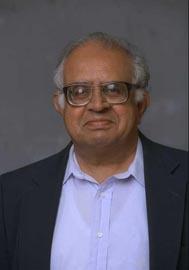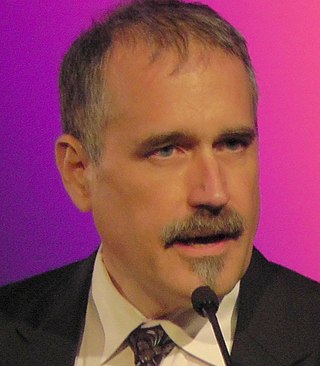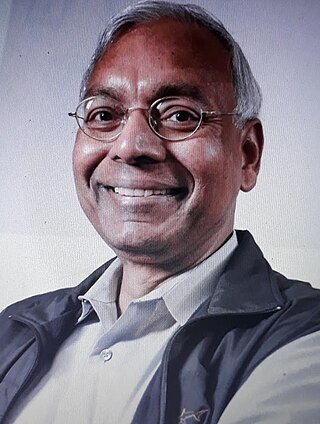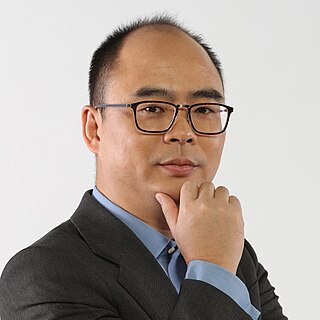Robert M. Haralick is Distinguished Professor in Computer Science at Graduate Center of the City University of New York (CUNY). Haralick is one of the leading figures in computer vision,pattern recognition,and image analysis. He is a Fellow of the Institute of Electrical and Electronics Engineers (IEEE) and a Fellow and past president of the International Association for Pattern Recognition. Professor Haralick is the King-Sun Fu Prize winner of 2016,"for contributions in image analysis,including remote sensing,texture analysis,mathematical morphology,consistent labeling,and system performance evaluation".

Simon S. Lam is an American computer scientist and Internet pioneer. He retired in 2018 from The University of Texas at Austin as Professor Emeritus and Regents' Chair Emeritus in Computer Science #1. He made seminal and important contributions to transport layer security,packet network verification,as well as network protocol design,verification,and performance analysis.

Thomas Shi-Tao Huang was a Chinese-born American computer scientist,electrical engineer,and writer. He was a researcher and professor emeritus at the University of Illinois at Urbana-Champaign (UIUC). Huang was one of the leading figures in computer vision,pattern recognition and human computer interaction.

King-Sun Fu was a Chinese-born American computer scientist. He was a Goss Distinguished Professor at Purdue University School of Electrical and Computer Engineering in West Lafayette,Indiana. He was instrumental in the founding of International Association for Pattern Recognition (IAPR),served as its first president,and is widely recognized for his extensive and pioneering contributions to the field of pattern recognition and machine intelligence. In honor of the memory of Professor King-Sun Fu,IAPR gives the biennial King-Sun Fu Prize to a living person in the recognition of an outstanding technical contribution to the field of pattern recognition. The first King-Sun Fu Prize was presented in 1988,to Azriel Rosenfeld.

Rangasami Lakshminarayan Kashyap was an Indian applied mathematician and a Professor of Electrical Engineering at Purdue University.

Alan Conrad Bovik is an American engineer,vision scientist,and educator. He is a professor at the University of Texas at Austin (UT-Austin),where he holds the Cockrell Family Regents Endowed Chair in the Cockrell School of Engineering and is Director of the Laboratory for Image and Video Engineering (LIVE). He is a faculty member in the UT-Austin Department of Electrical and Computer Engineering,the Machine Learning Laboratory,the Institute for Neuroscience,and the Wireless Networking and Communications Group.
Bir Bhanu is the Marlan and Rosemary Bourns Endowed University of California Presidential Chair in Engineering,the Distinguished Professor of Electrical and Computer Engineering,and Cooperative Professor of Computer Science and Engineering,Mechanical Engineering and Bioengineering,at the Marlan and Rosemary Bourns College of Engineering at the University of California,Riverside (UCR). He is the first Founding Faculty of the Marlan and Rosemary Bourns College of Engineering at UCR and served as the Founding Chair of Electrical Engineering from 1/1991 to 6/1994 and the Founding Director of the Center for Research in Intelligent Systems (CRIS) from 4/1998 to 6/2019. He has been the director of Visualization and Intelligent Systems Laboratory (VISLab) at UCR since 1991. He was the Interim Chair of the Department of Bioengineering at UCR from 7/2014 to 6/2016. Additionally,he has been the Director of the NSF Integrative Graduate Education,Research and Training (IGERT) program in Video Bioinformatics at UC Riverside. Dr. Bhanu has been the principal investigator of various programs for NSF,DARPA,NASA,AFOSR,ONR,ARO and other agencies and industries in the areas of object/target recognition,learning and vision,image/video understanding,image/video databases with applications in security,defense,intelligence,biological and medical imaging and analysis,biometrics,autonomous navigation and industrial machine vision.
Matti Kalevi Pietikäinen is a Finnish computer scientist. He is currently Professor (emer.) in the Center for Machine Vision and Signal Analysis,University of Oulu. His research interests are in texture-based computer vision,face analysis,affective computing,biometrics,and vision-based perceptual interfaces. He was Director of the Center for Machine Vision Research,and Scientific Director of Infotech Oulu.

Anil Kumar Jain is an Indian-American computer scientist and University Distinguished Professor in the Department of Computer Science &Engineering at Michigan State University,known for his contributions in the fields of pattern recognition,computer vision and biometric recognition. He is among the top few most highly cited researchers in computer science and has received various high honors and recognitions from institutions such as ACM,IEEE,AAAS,IAPR,SPIE,the U.S. National Academy of Engineering,the Indian National Academy of Engineering and the Chinese Academy of Sciences.

The International Association for Pattern Recognition (IAPR),is an international association of organizations dedicated to computer vision or pattern recognition. It only admits one organization per country or territory. Individual people participate in the IAPR through their own country or territory's organization.

Demetri Terzopoulos is a Greek-Canadian-American computer scientist and entrepreneur. He is currently a Distinguished Professor and Chancellor's Professor of Computer Science in the Henry Samueli School of Engineering and Applied Science at the University of California,Los Angeles,where he directs the UCLA Computer Graphics &Vision Laboratory.
Josef KittlerFREng is a British scientist and Distinguished Professor at University of Surrey,specialising in pattern recognition and machine intelligence.

Theodosios Pavlidis is a computer scientist and Distinguished Professor Emeritus of Computer Science at the State University of New York,Stony Brook.

RenéVidal is a Chilean electrical engineer and computer scientist who is known for his research in machine learning,computer vision,medical image computing,robotics,and control theory. He is the Herschel L. Seder Professor of the Johns Hopkins Department of Biomedical Engineering,and the founding director of the Mathematical Institute for Data Science (MINDS).
Kristen Lorraine Grauman is a professor of computer science at the University of Texas at Austin on leave as a research scientist at Facebook AI Research (FAIR). She works on computer vision and machine learning.

Gang Hua is a Chinese-American computer scientist who specializes in the field of computer vision and pattern recognition. He is an IEEE Fellow,IAPR Fellow and ACM Distinguished Scientist. He is a key contributor to Microsoft's Facial Recognition technologies.
Jiebo Luo is a Chinese-American computer scientist,the Albert Arendt Hopeman Professor of Engineering and Professor of Computer Science at the University of Rochester. He is interested in artificial intelligence,data science and computer vision.
Gunilla Borgefors is a Swedish computer scientist specializing in image processing,including distance transforms,topological skeletonization,and edge detection. She is a professor emerita in the Department of Information Technology at Uppsala University,associated with the Centre for Image Analysis.

Mário A. T. Figueiredo is a Portuguese engineer,academic,and researcher. He is an IST Distinguished Professor and holds the Feedzai chair of machine learning at IST,University of Lisbon.
Xiaoming Liu is a Chinese-American computer scientist and an academic. He is a Professor in the Department of Computer Science and Engineering,MSU Foundation Professor as well as Anil K. and Nandita Jain Endowed Professor of Engineering at Michigan State University.














